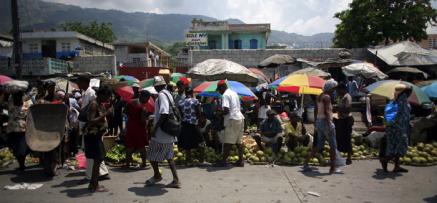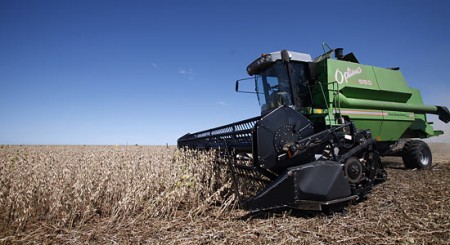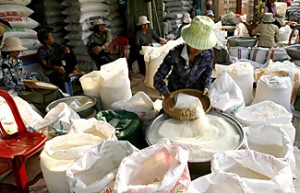Riots, protests and political unrest could multiply in the developing world as soaring inflation widens the gap between the “haves” and the “have nots”, an investment bank predicted yesterday.
Economists at Merrill Lynch view inflation as an “accident waiting to happen”. As prices for food and commodities surge, the bank expects global inflation to rise from 3.5% to 4.9% this year. In emerging markets, the average rate is to be 7.3%.
The cost of food and fuel has already been cited as a factor leading to violence in Haiti, protests by Argentinian farmers and riots in sub-Saharan Africa, including attacks on immigrants in South African townships.
Merrill’s chief international economist, Alex Patelis, said this could be the tip of the iceberg, warning of more trouble “between nations and within nations” as people struggle to pay for everyday goods. “Inflation has distributional effects. If everyone’s income moved by the same rate, you wouldn’t care – but it doesn’t,” said Patelis. “You have pensioners on fixed pensions. Some people produce rice that triples in price, while others consume it.”
A report by Merrill urges governments to crack down on inflation, describing the phenomenon as the primary driver of macroeconomic trends. The problem has emerged from poor food harvests, sluggish supplies of energy and soaring demand in rapidly industrialising countries such as China, where wage inflation has reached 18%.
Unless policymakers take action to dampen prices and wages, Merrill says sudden shortages could become more frequent. The bank cited power cuts in South Africa and a run on rice in Californian supermarkets as recent examples.
“You’re going to see tension between nations and within nations,” said Patelis.
The UN recently set up a taskforce to examine food shortages and price rises. It has expressed alarm that its world food programme is struggling to pay for food for those most at need.
Last month, the World Bank’s president, Robert Zoellick, suggested that 33 countries could erupt in social unrest following a rise of as much as 80% in food prices over three years.
Merrill’s report said the credit crunch has contributed to a global re-balancing, drawing to a close an era in which American consumers have been the primary drivers of the world’s economy.
In a gloomy set of forecasts, Merrill said it believes the US is in a recession – and that American house prices, which are among the root causes of the downturn, could fall by 15% over the next 18 months.
Read moreSurging inflation will stoke riots and conflict between nations, says report










